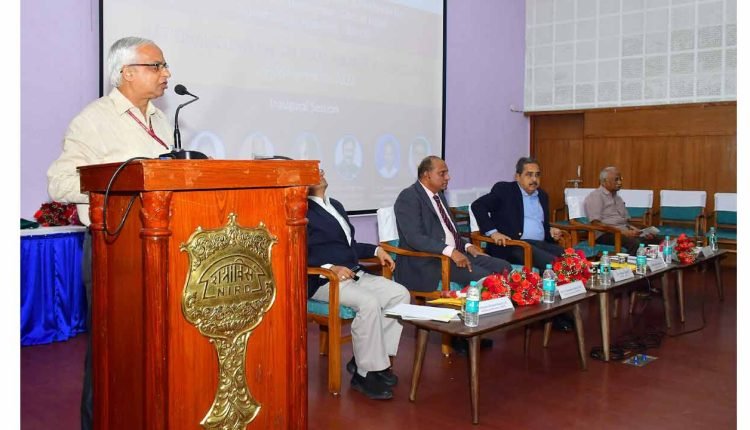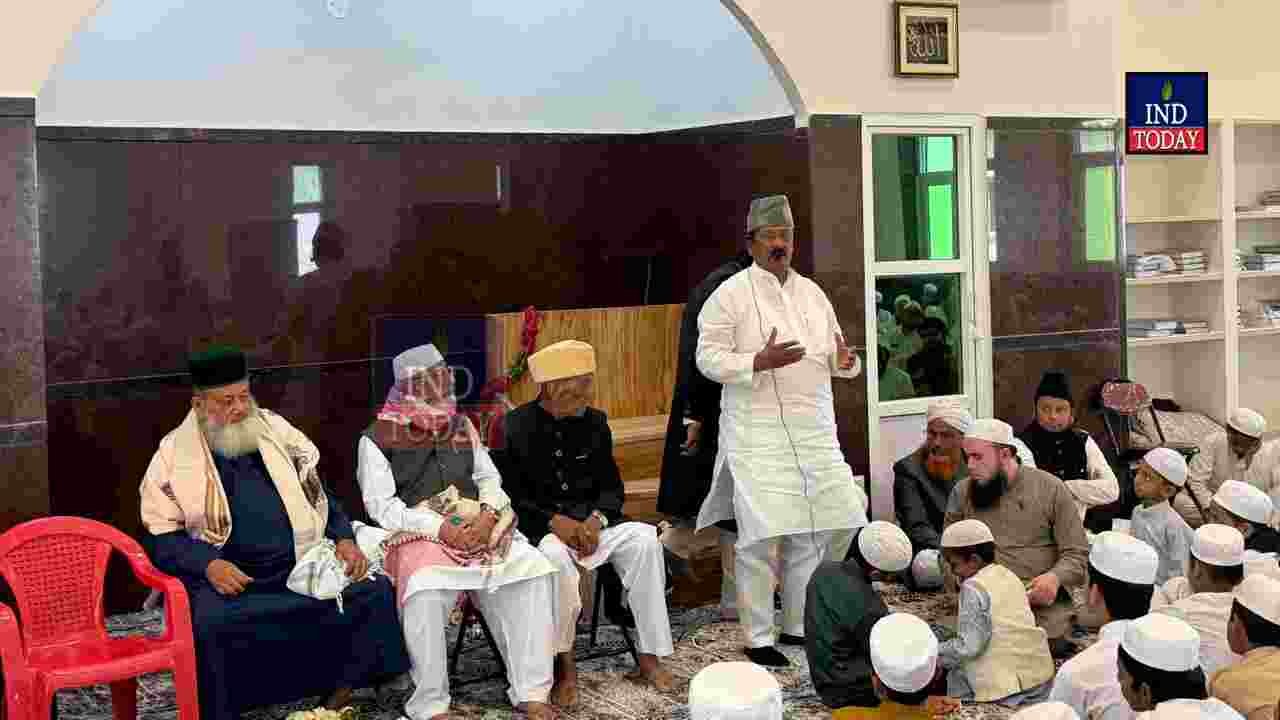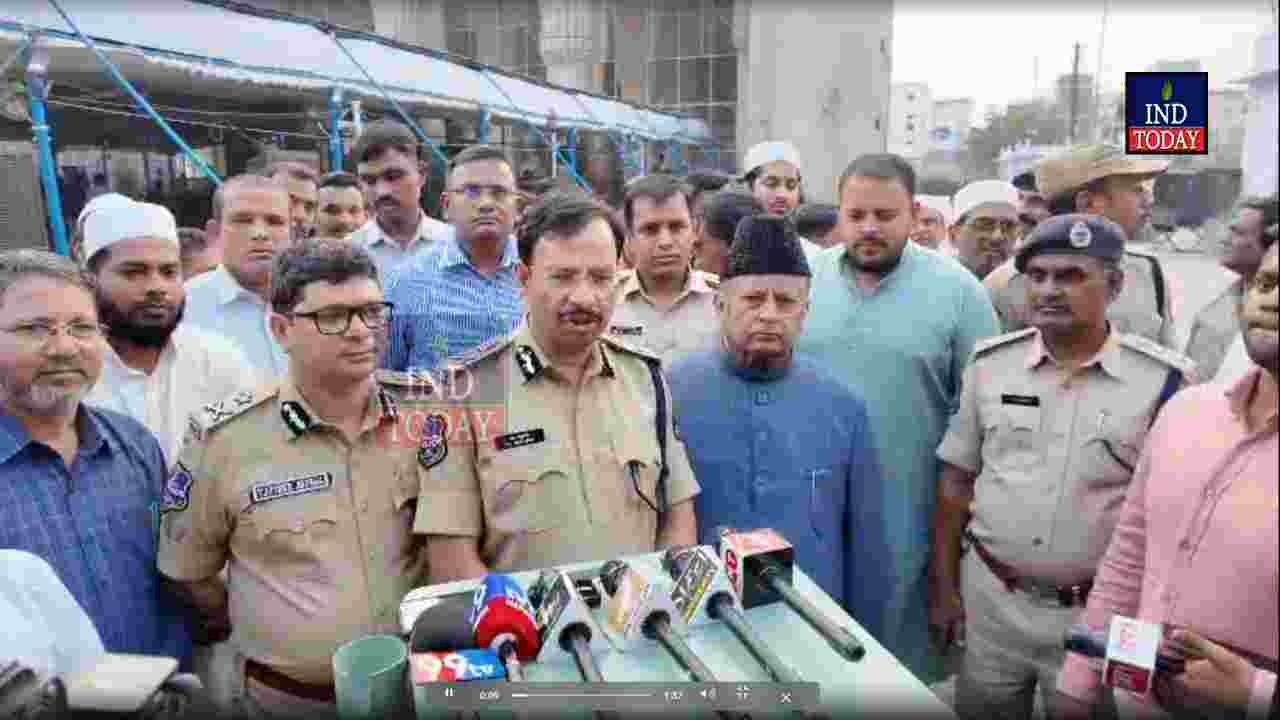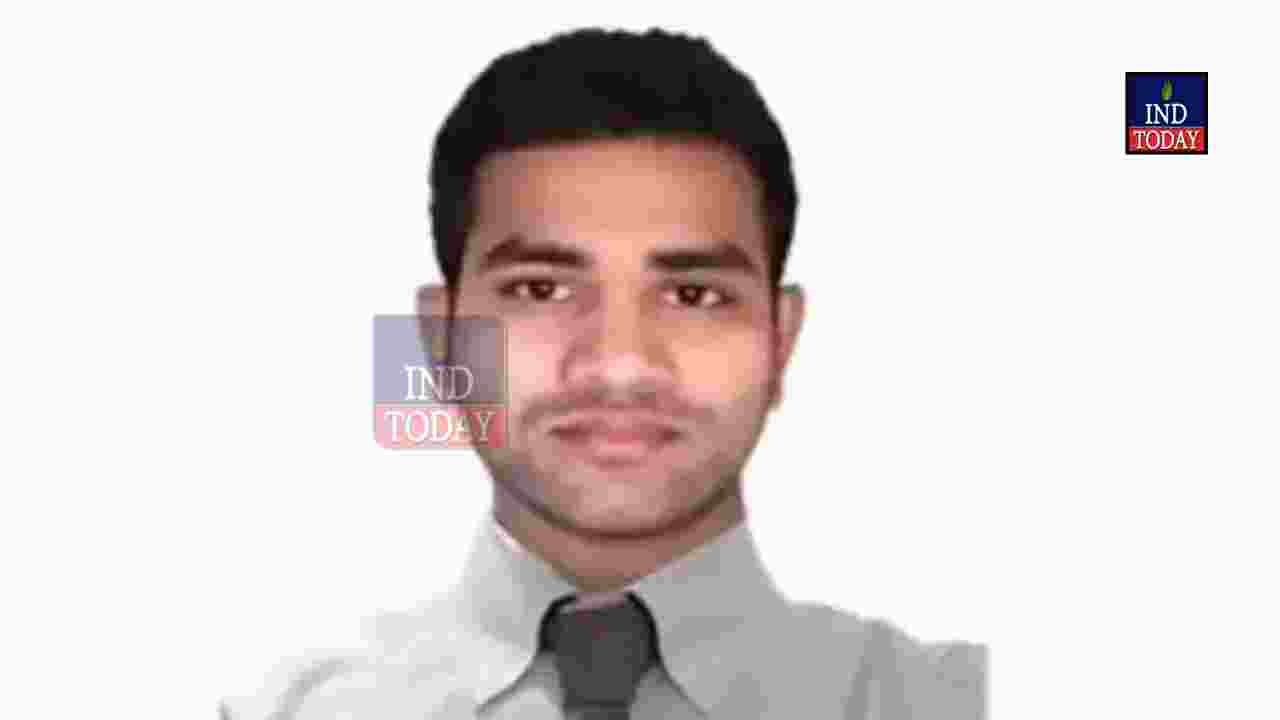Two-Day National Conclave Of State Finance Commissions Begins
Hyderabad, 29th November: The two-day National Conclave of State Finance Commissions (SFC) organised by the National Institute of Rural Development and Panchayati Raj (NIRDPR), Rajendranagar, Hyderabad from 29-30 November 2022, with the support of the Ministry of Panchayati Raj (MoPR), Government of India has begun. The Conclave was inaugurated by Dr. Ashok Lahiri, Member of the 15th Central Finance Commission at the Institute today.
About 40 distinguished dignitaries comprising Chairpersons & Members of SFCs, Secretary, MoPR, Additional Secretary, MoPR, Secretaries of Panchayati Raj and Finance departments of States/Uts, and the representatives from research institutions are participating in the Conclave. The deliberations will focus on the following key issues: i) Devolution formula adopted for the Local governments, ii) Processing and decisions on SFC recommendations, iii) Issues in the implementation of SFC recommendations, iv) Coordination between SFC and CFC recommendations and implementation, v) Suggestions of SFC for generating OSR, and vi) SFC recommendations on improving local governance.
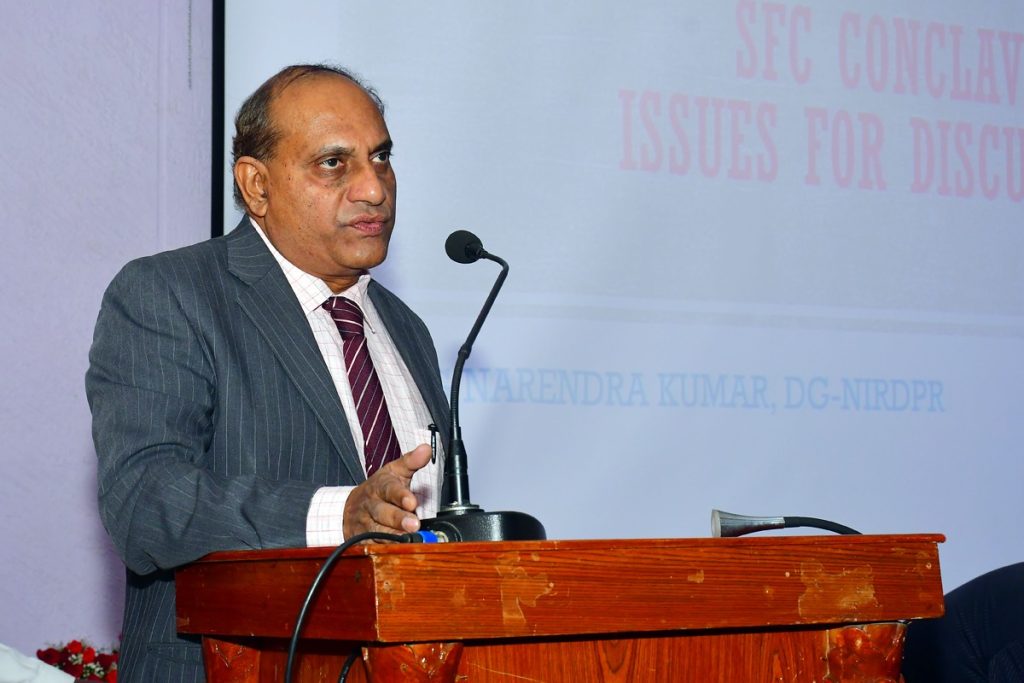
Dr. Anjan Kumar Bhanja, Associate Professor & Head, CPRDP&SSD, NIRDPR welcomed the participants to the Conclave.
Dr. C. S. Kumar, Additional Secretary, MoPR explained the background and objectives of the Conclave. He pointed out that finance is the lifeblood of the functioning of any organisation, and the SFC is significant in translating the mandate of the Constitution of India to make the Panchayats self-governing institutions. He said only nine states had constituted the 6th State Finance Commission (SFC), while another seven had established the 5th State Finance Commission. “There is a considerable variation in the functioning of SFCs and their recommendations. Though taxation powers are given to Panchayats in State Panchayati Raj Acts, rules are not framed in many States. With the results, Panchayats are unable to mobilise their own source revenues,” Dr. C. S. Kumar said, adding that extensive deliberations amongst the relevant stakeholders would lead to an actionable roadmap to professionalise the SFCs.
Dr. Ashok Lahiri, Member of the 15th Central Finance Commission (CFC), in his inaugural address, raised many issues relating to governance in Panchayati Raj Institutions. He pertinently pointed out that these local governments actually touch the people at the local level by providing them basic services. “Gandhiji greatly believed in grassroots democracy, and we see democracy in action only at Gram Sabha. There is a need to strengthen the Panchayats to mobilise internal revenues for efficient service delivery,” Dr. Ashok Lahiri said. Reminding that the 15th Central Finance Commission had recommended enhancing the professional tax from the existing limit of Rs 2500 to Rs 18000 per annum. “The Panchayats should mandatorily collect property tax, and it needs to be considered by the States,” he added.
Dr. G. Narendra Kumar, Director General, NIRDPR said that the Conclave would focus on the following issues for all-round analysis and working of SFCs, and suggest a broad roadmap and strategy towards bringing excellence to the functioning of SFCs in the future.
How to work out a divisible pool of the State revenues – determination of State tax revenues and the collection charges to arrive at the “net proceeds” and the principles for distribution.
How to assess to requirements of PRIs – Review and forecast of (a) Revenues based on past trends and revenue potential (b) Expenditure on a normative basis.
How to develop a comprehensive system for compilation of data on Panchayats’ finances- To enable SFCs to assess the income and expenditure of the Panchayats.
How to work out devolution formula to rectify vertical gap. i.e., the mismatch between expenditure responsibilities and potential OSR, and rectify horizontal gap to equalise the inter-jurisdictional disparities.
How to professionalise SFCs- to design fiscal transfers to Panchayat to enhance their fiscal capacity and functional autonomy.
Shri Sunil Kumar, Secretary, MoPR explained the role of CFC and SFCs in strengthening Panchayati Raj Institutions. He said MoPR has drawn up a broad vision for the socio and economic transformation of rural areas through eGramSwaraj, SVAMITVA and Audit online, etc. Therefore, there is an urgent need to align the functioning of SFCs to maximise their contribution to strengthening the finances of Panchayats. Shri Sunil Kumar expressed hope that this Conclave would deliberate on redefining the role and functioning of SFC in a collaborative and consultative manner. He assured that the recommendations of the Conclave would be taken up with the States for consideration and implementation.
The inaugural session ended with vote of thanks presented by Dr. Chinnadurai, Associate Professor, CPRDPSSD, NIRDPR
About NIRDPR
The National Institute of Rural Development and Panchayati Raj (NIRDPR), Hyderabad is an autonomous organisation under the Union Ministry of Rural Development. It is a premier national centre of excellence in rural development and panchayati raj. Recognised internationally as one of the UN-ESCAP Centres of Excellence.
As a “think-tank” for the Ministry of Rural Development, and the Ministry of Panchayati Raj, NIRDPR acts as a repository of knowledge on rural development and assists the ministries in policy formulation in rural development to usher in the changes. NIRDPR builds the capacities of rural development functionaries, elected representatives of PRIs, bankers, NGOs and other stakeholders through inter-related activities of training, research and consultancy.
The Institute focuses on the policies and programmes that benefit the rural poor, energise the democratic decentralisation processes, improve the operational efficiency of rural development personnel, promote transfer of technology and create environmental awareness. In addition to the main campus at Hyderabad, this Institute has North-Eastern Regional Centre at Guwahati, Assam, to meet the requirements of the NE region.
Next Story :
Now you can get latest stories from Indtoday on Telegram everyday. Click the link to subscribe. Click to follow Indtoday Facebook page and Twitter and on Instagram. For all the latest Hyderabad News updates

